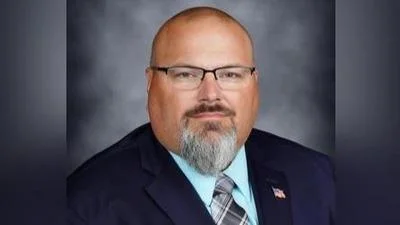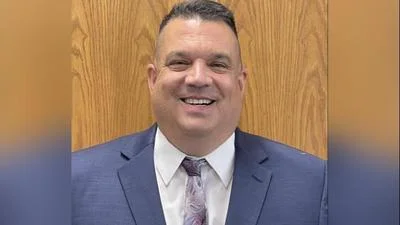Cory Tomczyk Wisconsin State Senator (District 29) | https://www.facebook.com
Cory Tomczyk Wisconsin State Senator (District 29) | https://www.facebook.com
According to the Wisconsin State Legislature's official website, the bill was described as follows: "requiring a school board to spend at least 70 percent of its operating expenditures on direct classroom expenditures and annual pay increases for school administrators. (FE)".
The following is our breakdown, based on the actual bill text, and may include interpretation to clarify its provisions.
In essence, this bill mandates that school boards allocate at least 70% of their operating expenditures to direct classroom costs, which include salaries and benefits for teachers and teacher aides, instructional supplies, tuition, athletic programs, and co-curricular activities. Should a school board fall short of this threshold in any school year, it must increase direct classroom spending by at least 2% annually until compliance is achieved. Additionally, the Department of Public Instruction will reduce state aid to districts that do not meet the 70% requirement, with the shortfall offset by reduced property taxes. The bill also limits annual compensation increases for school administrators, tying them to the average percentage increase given to teachers. This increase limitation applies to contracts entered into, renewed, or modified once the bill is enacted, with the effective date set for July 1, 2026.
The bill was co-authored by Representative Benjamin Franklin (Republican-88th District). It was co-sponsored by Representative Scott Allen (Republican-82nd District), Representative Elijah R. Behnke (Republican-6th District), and Representative Nate L. Gustafson (Republican-55th District), along one other co-sponsor.
Cory Tomczyk has authored or co-authored another 18 bills since the beginning of the 2025 session, with none of them being enacted.
Tomczyk, a Republican, was elected to the Wisconsin State Senate in 2023 to represent the state's 29th Senate district, replacing previous state senator Jerry Petrowski.
In Wisconsin, the legislative process starts when a senator, constituent, group, or agency proposes an idea for a bill. After drafting, the bill is introduced, numbered, and referred to a committee for review and public input. If approved, it moves through three readings and votes in both the Senate and Assembly. Once both chambers pass the same version, the bill goes to the governor, who can sign it, veto it, or let it become law without a signature. Only a small share of bills introduced each session ultimately become law. You can learn more about the Wisconsin legislative process here.
| Bill Number | Date Introduced | Short Description |
|---|---|---|
| SB32 | 02/12/2025 | Requiring a school board to spend at least 70 percent of its operating expenditures on direct classroom expenditures and annual pay increases for school administrators. (FE) |
| SB27 | 02/07/2025 | Requiring state employees to perform their work at the offices of their employer. (FE) |
| SB22 | 02/05/2025 | Requiring school boards to make textbooks, curricula, and instructional materials available for inspection by school district residents |
| SB17 | 02/05/2025 | Special circumstances battery to a community service officer and providing a penalty |
| SB16 | 02/05/2025 | Participation in interscholastic athletics and application of the public records and open meetings laws to interscholastic athletic associations |
| SB9 | 01/24/2025 | Special registration plates with white lettering on a black background. (FE) |
| SB8 | 01/24/2025 | Repair and replacement of implements of husbandry under warranty |
| SB3 | 01/24/2025 | Requiring local approval for certain wind and solar projects before Public Service Commission approval |
| SB2 | 01/24/2025 | Expanding veterans benefits to individuals who served in Laos in support of the United States during the Vietnam War |






 Alerts Sign-up
Alerts Sign-up